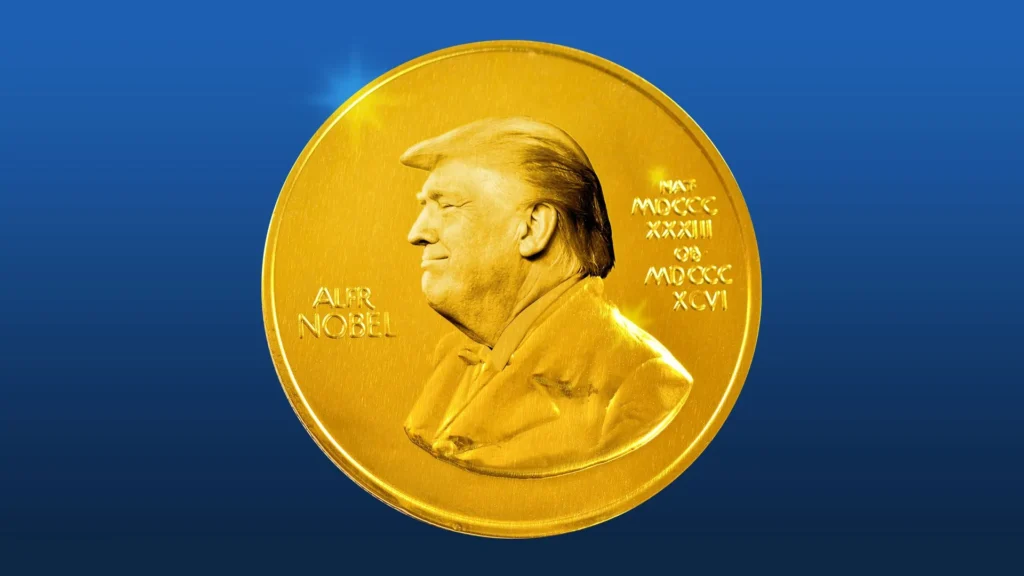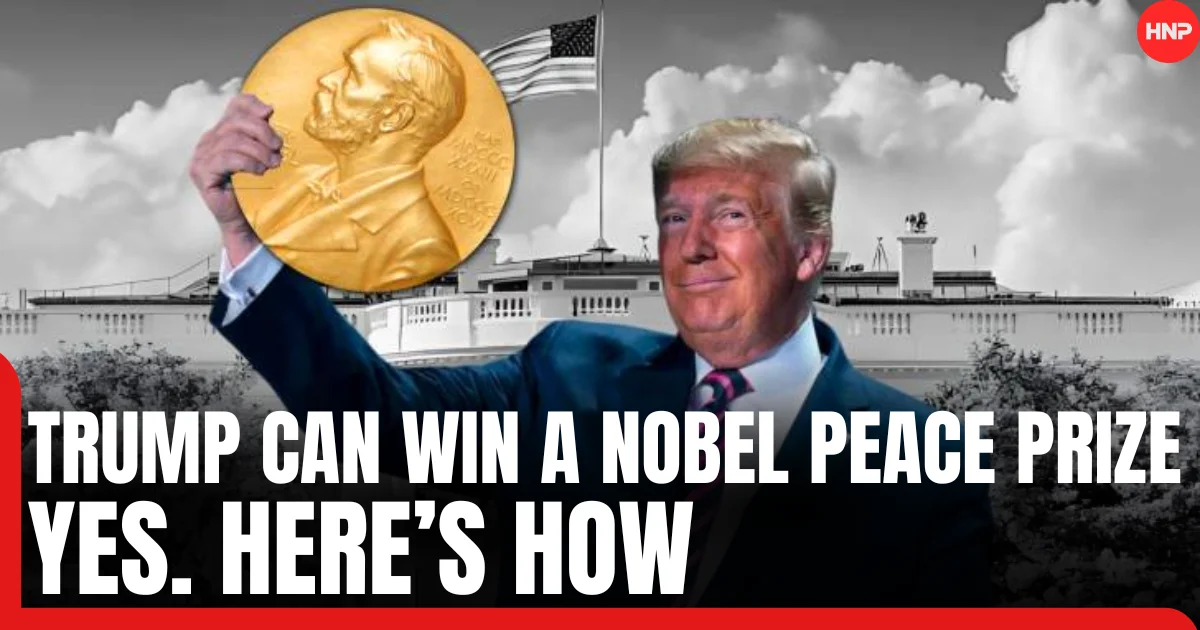Trump’s new peace plans for Ukraine and Gaza could make him a contender for the 2026 Nobel Peace Prize. Here’s why it might actually happen.
Table of Contents
Can Trump Really Win a Nobel Peace Prize? Yes. Here’s How
Introduction
Former U.S. President Donald Trump has long expressed his desire to win a Nobel Peace Prize, and for the first time, the idea might not be as far-fetched as it once seemed. As potential breakthroughs emerge in both Ukraine and Gaza, Trump’s diplomatic efforts could shape the path toward peace — and possibly toward Oslo.

Ukraine: A Fragile Path Toward Settlement
After nearly two years of brutal conflict, the war in Ukraine may finally be approaching a turning point. Reports from recent summits between Trump, Russian President Vladimir Putin, and Ukrainian President Volodymyr Zelensky suggest that a framework for peace is being discussed.
The potential deal appears to rest on two key pillars:
- Security Guarantees: Long-term U.S. and NATO commitments to help Ukraine defend its sovereignty against future aggression.
- Land Swaps: Adjustments along the current line of contact to secure borders and stabilize both nations.
This would mark a significant diplomatic milestone — one that could lay the foundation for a ceasefire and eventual peace accord.
However, success will require sustained military support from the West, consistent sanctions on Moscow, and firm pressure to bring Russia to the table.
If Trump’s administration maintains this approach, a settlement before the 2026 Nobel announcement may be achievable.
Gaza: From Breakdown to a Possible Breakthrough
In Gaza, Trump inherited a volatile situation from the previous administration. After the initial ceasefire collapsed earlier this year, the conflict intensified — with devastating humanitarian consequences.
Last week, Trump unveiled a 20-point peace plan that has gained surprising momentum. The proposal calls for:
- Israel to renounce annexation or occupation of Gaza
- Hamas to relinquish control and release all hostages
- An international coalition, led by the U.S., to oversee reconstruction and governance
Notably, the plan has won support from key nations including Saudi Arabia, Qatar, Egypt, Jordan, and Turkey. Even Hamas has issued a conditional response, indicating a willingness to negotiate terms.
This new framework could mark the beginning of a Gaza without Hamas — a precondition for lasting peace in the region.
Why It Matters

If the Trump administration manages to broker even partial resolutions to both the Ukraine and Gaza conflicts, it would represent a historic diplomatic achievement.
For the Nobel Committee, such progress — regardless of political controversy — could meet the fundamental criterion of the Peace Prize: “to advance fraternity between nations.”
Moreover, success in these arenas could reshape global power dynamics, curbing both Russian and Iranian ambitions, and creating a ripple effect that stabilizes regions from Eastern Europe to the Middle East.
Expert View
Analysts note that the Nobel Peace Prize for 2026 would coincide with its 125th anniversary, a symbolic moment that could underscore reconciliation over division.
“Should the U.S. facilitate credible peace agreements in both Ukraine and Gaza, it would be one of the most consequential years in recent diplomacy,” said a senior foreign policy expert in Washington. “In that case, awarding Trump would not be about politics, but about results.”
Impact and Challenges Ahead
Despite optimism, significant challenges remain:
- Russia’s internal instability and economic strain may complicate negotiations.
- Hamas’s resistance to disarm and Israel’s security concerns could stall progress.
- The global community’s willingness to fund reconstruction and enforcement will be critical.
Yet, if the momentum toward peace continues, Trump could indeed stand before the Nobel Committee in Oslo next year as a serious contender — a scenario once thought impossible.
FAQs
1. Why do some believe Trump deserves a Nobel Peace Prize?
Supporters cite his administration’s role in advancing potential peace talks in Ukraine and Gaza, as well as previous diplomatic efforts like the Abraham Accords.
2. When will the Nobel Peace Prize 2026 be announced?
The Nobel Committee selects its recipient in October 2026, with the award presented on December 10.
3. What are Trump’s main peace proposals?
They involve a security guarantee for Ukraine, a ceasefire in Gaza, and international cooperation to rebuild war-torn regions.
4. Has any U.S. president won the Nobel Peace Prize before?
Yes. Theodore Roosevelt, Woodrow Wilson, Jimmy Carter, and Barack Obama have all received the prize for peace-related efforts.
5. Could political controversies affect Trump’s chances?
Possibly. The Nobel Committee traditionally avoids partisan considerations, but global perception and political divisions could still influence the outcome.
Conclusion
While skepticism remains high, Trump’s recent diplomatic maneuvers in Ukraine and Gaza could redefine his legacy — and make him a credible candidate for the 2026 Nobel Peace Prize.
Whether he wins or not, the world stands to gain if these wars finally end.
Follow HNP Times for the latest updates on U.S. politics, global diplomacy, and international peace efforts.

